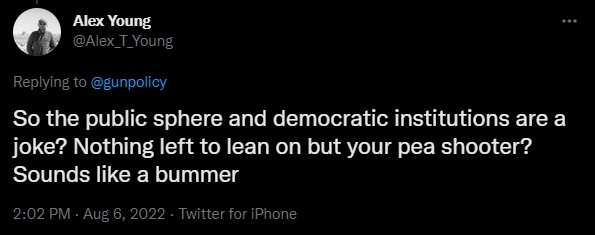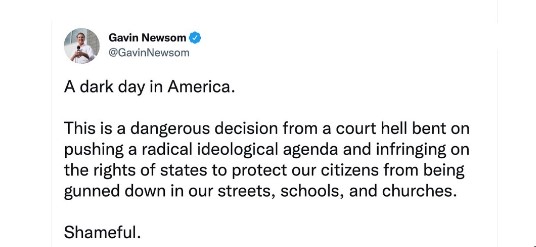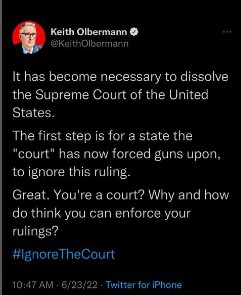“They’re just statues.”
“They’re not alive.”
“How can you get so upset about an inanimate object?”
More times than I can count, I have been asked these questions.
To me, statues are a matter of identity. I love Christopher Columbus, and I love the generals who fought for the Confederacy. But even more importantly, I see these people as myself. When I see a statue of Columbus or someone from the Confederacy, I feel that the statue essentially is me. Not literally, of course, but symbolically and spiritually. When I see such a statue, it makes me feel represented. It makes me feel included. It makes me feel that people like me are welcome and accepted in our society.
That is why it has been so incredibly hurtful, traumatizing, and devastating to see Columbus statues and Confederate statues being violently destroyed across the country and world. The symbols of my inclusion and acceptance in society have been hacked to pieces with sledgehammers, smashed on the ground, beheaded, thrown into harbors, set on fire, and had nooses tightened around their necks. How do you think that would make someone feel?
Additionally, how do you think it would feel to see the people who are supposed to be in charge in our society – mayors, governors, senators, congresspeople, the president – react not with unequivocal condemnation but with ambivalence? How do you think it would feel to read statement after statement saying something like, “destroying property isn’t the best way to make one’s point, but the protesters’ feelings are completely understandable”?
And how do you think it makes me feel to read about analogous situations involving other cultures’ statues and monuments – the vandalism of a George Floyd sculpture in New York City, for example – and to see politicians react with exactly the harsh condemnation that they withheld when it was my statues being destroyed?
In short, it makes me feel persecuted. If there were just one or two isolated acts of vandalism targeting people like me, that would be sickening and infuriating, but tolerable. But when these acts are a consistent pattern, happening again and again all over the country and in other countries as well, the pain becomes so horrible that life is no longer worth living. These actions are just as hurtful as if these violent attacks were done to me. And our government, whose job it is to protect people’s rights and to ensure that justice is done, did nothing. In many cases, governments actually took actions that benefitted, rewarded, and/or publicly honored the perpetrators. Companies, sports teams, organizations, almost without exception did nothing. Or, worse, they chose to publicly express support not for the people who have been hurt, but for the movement that committed the hurtful actions.
The question that occupies my mind every second of every minute of every hour of every day is this: How can I continue to exist in a world where all of the institutions that make up our society hate people like me? How can I live a happy life in a society that consistently, pervasively, and repeatedly sends the message that people like me are not welcome here?
I have been going to a therapist to try and figure out the answers to these questions. My therapist once explained to me that every person has the right to hold whatever ideas they wish in their internal world, but problems arise when people try to impose their ideas on the external world. In other words, I can enjoy my historical figures, and even consider them my friends, in my internal world, regardless of what happens to their likenesses in the external world. It is understandably upsetting, she told me, to see the statues destroyed, but it’s not the case that my rights were violated, because I don’t have a right, per se, to see the historical figures from my internal world reflected in the external one.
I have spent a lot of time thinking about this and have come to the conclusion that if there were no statues and monuments at all, no holidays honoring individuals or groups, and no places named after historical figures, then I would agree with what my therapist said. But the problem is that there are statues, holidays, and place names for some historical figures and not others. Some people get to see their internal world reflected in the external world, while I do not. This disparate treatment is unfair and unjust. Therefore, I do believe that my rights have been violated.
I will soon be getting a statue of Stonewall Jackson to put up outside my house. My therapist thinks this is a good idea, because although the statue will technically be part of the external world, he will be located on my own property, and therefore will enable me to honor a person that I love and identify with, without the dangers inherent in having a statue on public land.
Don’t get me wrong – I am very happy and excited to get my Stonewall statue. But the thing is, I shouldn’t have to.
I shouldn’t have to pay $3,000 to erect a small statue that actually represents me, while other people get to have large statues, located on public land and paid for with government funds, of the people that they identify with. Those who identify with Abraham Lincoln, or George Washington, or Paul Revere, or Martin Luther King, Jr. do not have to pay to erect their own personal statues. While other groups get to have their internal world reflected in the external one through public art, the art that represents my identity is banished from public spaces and relegated to my own backyard. I think it is awesome that organizations such as Monuments Across Dixie and campaigns such as Lee Rides Again are raising money to build statues on privately-owned land. But when you think about it, they should not have to do this. People like me deserve to be publicly acknowledged as welcome and accepted members of society just as much as anyone else does.
In conclusion, while there is certainly something to be said for focusing on one’s internal world, I’m not sure that this is sufficient in cases where one is not merely failing to get one’s way, but actually being discriminated against and treated unjustly. Giving up on the real world, and withdrawing into the imaginary one, reflects a disturbingly bleak view of the world and its future. Unfortunately, this might be my only option given that the real world has decided to persecute and discriminate against people like me.
One final note: You might ask why I identify so strongly with Columbus and Confederate people. Why are statues of these particular people necessary for me to feel represented and included? I am a woman, so many people might think I should feel represented by the Boston Women’s Memorial, featuring statues of various women from history. I am on the autism spectrum, so many people might think it would make me feel included when Autism Acceptance Month is celebrated every April. Many people also make the argument that Columbus Day and Columbus statues are unnecessary because there are numerous historical figures other than Christopher Columbus whom Italian Americans could choose to represent us. But although I find the Women’s Memorial beautiful and creative, I appreciate that there is a month honoring autistic people, and I wouldn’t mind the addition of more Italian American statues, none of these things move me emotionally. None of them resonate with me. None of them make me feel represented or included. I feel a spiritual and emotional connection with Columbus and with people from the Confederacy. Perhaps this is because they are considered rebels and underdogs; perhaps it is because they were quirky and different; perhaps it is because they are misunderstood and looked down upon. Just as people cannot be expected to provide a logical justification for being straight, or gay, or bisexual, my identity cannot be reduced to arguments or reasoning. The bottom line is that each individual person has the right to decide what types of statues, monuments, and holidays represent them. No one has the right to impose their ideas of representation on anyone else.











